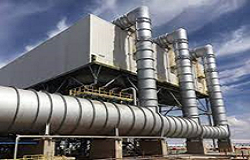|
Polity and Governance
Most internet shutdowns

|
India has had the most internet shutdowns for five years in a row now, recording almost half of all shutdowns globally in 2022, found a report by a non-profit looking into digital civil rights.
Details of the report:
- Title: ” Weapons Of Control, Shields Of Impunity — Internet Shutdowns“
- India saw 84 shutdowns out of the total 187 worldwide.
- Ukraine saw the second-highest number of shutdowns, with 22 imposed by external forces during armed conflict in the country and Yemen.
- Iran remained at third position with 18 shutdowns.
Findings for India:
- Authorities disrupted internet access at least 49 times in Jammu and Kashmir due to political instability and violence.
- This included a string of 16 back-to-back orders for three-day-long curfew-style shutdowns in January and February 2022.
Laws in India:
- The proposed Draft Indian Telecommunication Bill, has empowered central and state governments with unrestricted powers to impose shutdowns when “necessary and expedient,” signals the government’s intention to continue down this troublesome path, violating fundamental rights of expression and assembly and providing opportunities to cover up human rights abuses.
- In Anuradha Bhasin vs Union of India, the SC had laid down procedural safeguards to be followed by the government before resorting to internet shutdowns.
|
|
Polity and Governance
Foreign Contribution (Regulation) Act (FCRA)

|
The Ministry of Home Affairs (MHA) has suspended the Foreign Contribution (Regulation) Act (FCRA) registration of the Centre for Policy Research (CPR), a Delhi-based think tank, for 180 days.
Role of FCRA:
- FCRA registration is mandatory to receive foreign funds.
- The suspension means that the association will not be able to receive any fresh foreign donations or utilise the existing foreign donations without the Ministry’s clearance.
- Broadly, the FCRA requires every person or NGO wishing to receive foreign donations to be registered under the Act, to open a bank account for the receipt of the foreign funds in State Bank of India, Delhi, and to utilise those funds only for the purpose for which they have been received and as stipulated in the Act.
Centre for Policy research (CPR):
- Founded in 1973, the CPR, according to its website, is a non-profit, non-partisan, independent institution.
- It is dedicated to conduct research that contributes to high quality scholarship, better policies, and a more robust public discourse about the issues that impact life in India.
- CPR works with government departments, autonomous institutions, charitable organisations and universities in India and across the globe.
- The institution’s work is globally recognised for its academic and policy excellence.
|
|
Environment
India’s first air-cooled condenser

|
NTPC has commissioned India’s first air-cooled condenser at North Karanpura super critical thermal plant in Jharkhand.
What is an Air cool condenser:
- An air cooled condenser (ACC) is a direct dry cooling system where steam is condensed inside air-cooled finned tubes.
- The cool ambient air flow outside the finned tubes is what removes heat and defines the functionality of an ACC.
- In air-cooled condensers, condenser heat is rejected directly to the ambient air.
- The obvious advantage of air-cooled condensers relative to water-cooled condensers is that cooling water is not needed.
About:
- This project has been envisaged with Air Cooled Condenser (ACC) which has almost 1/3rd water footprint as compared to a conventional Water Cooled Condenser (WCC).
- NTPC will further imbibe the 3Rs (reduce, reuse, recycle) for water conservation and management while carrying out its core business activity of power generation.
National Thermal Power corporation (NTPC):
- NTPC Limited, formerly known as National Thermal Power Corporation Limited, is an Indian central public sector undertaking under the ownership of the Ministry of Power, Government of India which is engaged in generation of electricity and allied activities.
- NTPC is currently meeting 24 per cent of country’s demand through coal, gas, hydro, solar and wind plants.
|







